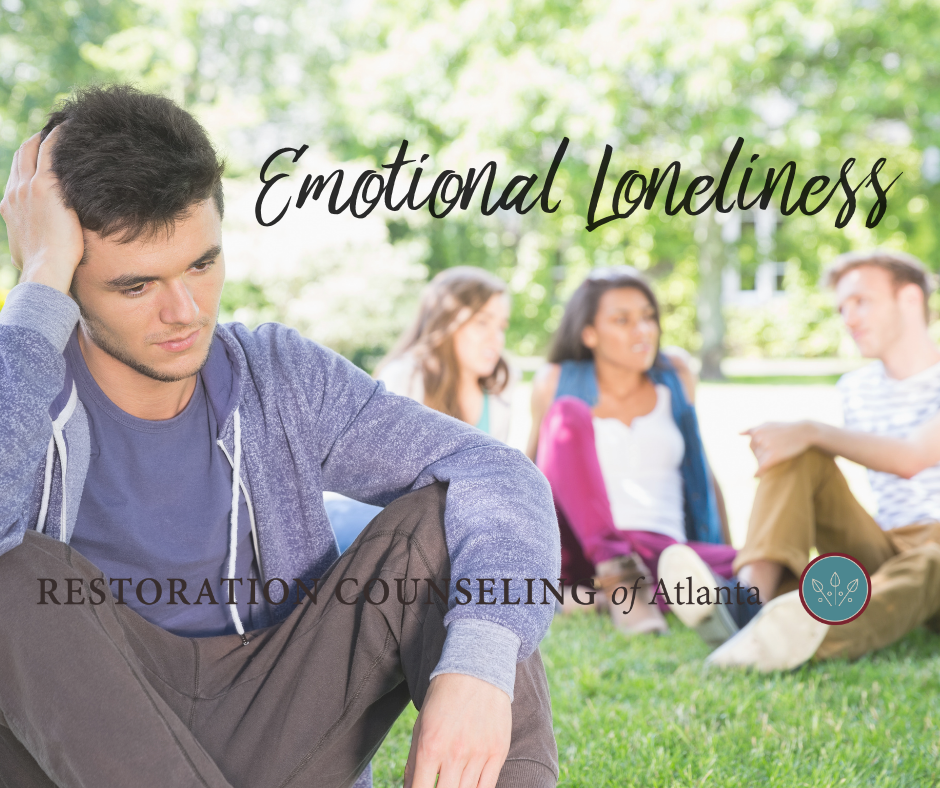Are we emotionally lonely?
While we are still social distancing and following the recommended COVID protocols, many of us have been starting to reconnect with friends and loved ones in moderation. We are coming out of our houses and embracing our community in a relatively distant and healthy way. Is there such a thing as emotional loneliness?
We are glad to be out of our cave of physical loneliness and seeing the light of day. Being in COVID we’ve certainly let a bit of our social connection and social capital relax. We are now getting out and reconnecting. As a result, it is quite likely that we are unaware of how much we have changed during this time. This cannot all be boiled down to social mechanics.
A number of people have learned something deeply personal about themselves from this. Quite simply put: They are lonely. What once felt like a relatively simple physical distance from people has turned out to be far more complicated than expected. Many of us, despite seeing others now, are finding ourselves emotionally lonely. And this may be the most lasting parting gift that the pandemic will leave us.
What is emotional loneliness?
Emotional loneliness is best understood and described as an emptiness that is created from a lack of connection or relationship. It’s the feeling that even though you are speaking the words, no one really understands what you are saying. You are communicating, chatting, laughing, and responding to others but it feels more akin to acting than real socialization. And no amount of lexical nuance or silver-tongued dialogue can directly solve this problem.
Are we all affected by emotional loneliness?
People who feel emotionally lonely tend to see themselves as different, distant, and as “the other.” They feel that their emotions are unrelatable or alien to those around them – even to the people who have known them their whole lives. They feel that something in them has changed at a core, fundamental level and that no one around them will fully be able to grasp this. This feeling is akin to the feeling that Stephen King describes as “terror” in his various public discussions about the “Three Levels of Horror.” King notes in regards to terror, “[it’s] when you come home and notice everything you own had been taken away and replaced by an exact substitute.”
The emotionally lonely person feels that all that makes him the person he is has been taken away and replaced with a series of replicas. Everything looks just the way it was to the untrained eye. But, once you’ve examined it with a fine-toothed comb, you find what seems to be an imposter walking in the shoes of a person you once thought you understood.
Can this emotional loneliness be fixed?
Emotionally loneliness is not impossible to solve though. The biggest thing an emotionally lonely person can do for themselves is to first accept responsibility. They are the ones who must take the lead in solving this problem. They must realize that others will not directly be able to save them from this. No one will be able to magically read the mind of the emotionally lonely person and step in to fix their loneliness. The person must be honest and vulnerable, sharing with loved ones with an open expression of emotions, and the related complications. This may help one to get rid of the feeling of emotional loneliness. It is not a one-time thing to solve. This must become a part of frequent habits by which emotionally lonely people will find themselves more connected and free from their alien self-perception.
How We Can Help Ourselves and Others
By choosing self-disclosure in a more discrete but habitual way, emotionally lonely people become emotionally-enabling people. Others will seek the honesty and acceptance that the emotionally lonely person displays and aim to follow suit. If you are emotionally lonely today, begin by embracing honesty and self-compassion towards yourself. You are not an imposter. Connection and a sense of belonging is part of who you are. Treat yourself as a person who needs yourself and others in order to find balance and grounding.
Written by: Jared Pogue, LPC

